#bora chung
Text

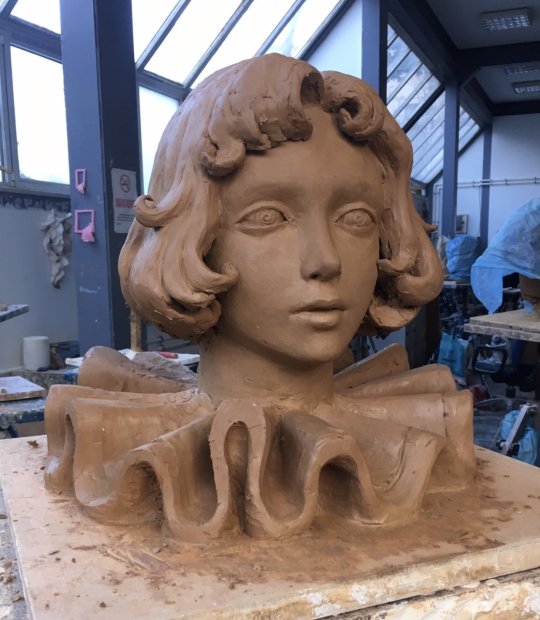
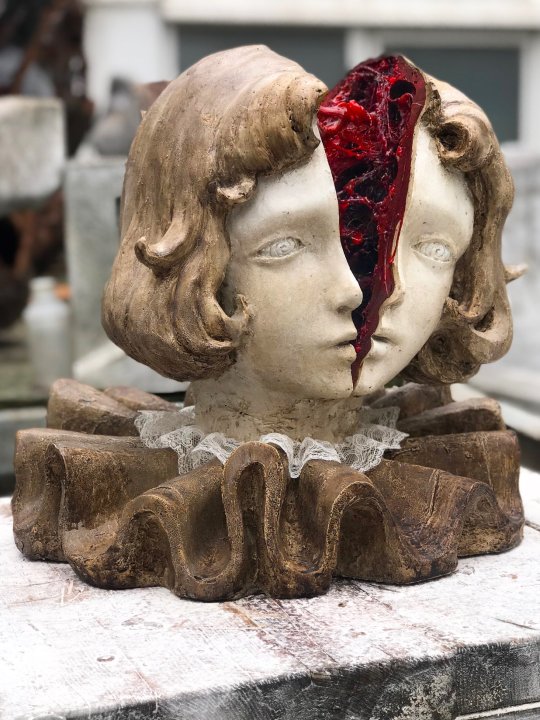





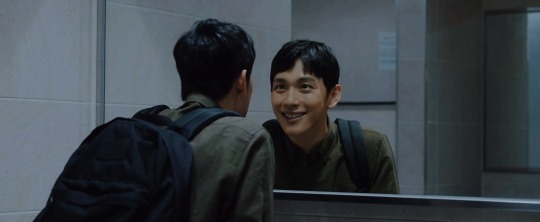
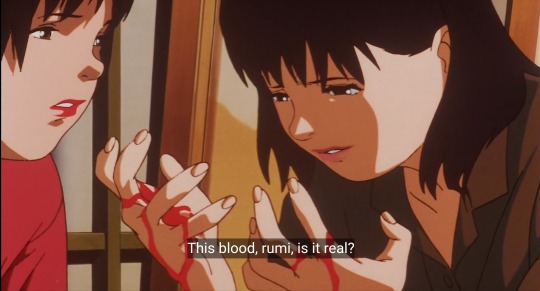


"...is this who I really am?" - Yoon Jongwoo, Strangers from Hell (2019)
[ Fyodor Dostoyevsky, Notes from Underground// untitled sculpture, ceydajeevas on instagram// Franz Kafka, The Metamorphosis// Strangers from Hell (2019), dir Lee Chang-hee// Bora Chung, Cursed Bunny// Monster (2004)// Hieu Minh Nguyen, Elegy for the First// Perfect Blue (1997), dir Satoshi Kon// Naoki Urasawa, Monster (1994-2001) ]
#web weaving#fyodor dostoevsky#notes from underground#franz kafka#the metamorphosis#strangers from hell#yoon jongwoo#bora chung#cursed bunny#monster#naoki urusawa#naoki urasawa's monster#hieu minh nguyen#perfect blue#quotes#words#literature#poem#poetry#hell is other people#yim siwan#johan liebert#parallels
798 notes
·
View notes
Text
That was the first time he sobbed in earnest. Not the cries of someone driven mad with fear, but the tears of someone who understood and was saddened by their own loneliness—the tears of a human being.
Bora Chung, "Scars" from Cursed Bunny (translated by Anton Hur)
86 notes
·
View notes
Text
all of these i'm looking forward to reading, which is exactly why i have trouble picking one to start with. i'll be going in order of most to least votes.
#text posts#poll#the locked tomb#tamsyn muir#cursed bunny#bora chung#my heart is a chainsaw#the only good indians#stephen graham jones#house of leaves#mark z danielewski#we have always lived in the castle#shirley jackson#piranesi#susanna clarke#the beauty#aliya whiteley
30 notes
·
View notes
Text

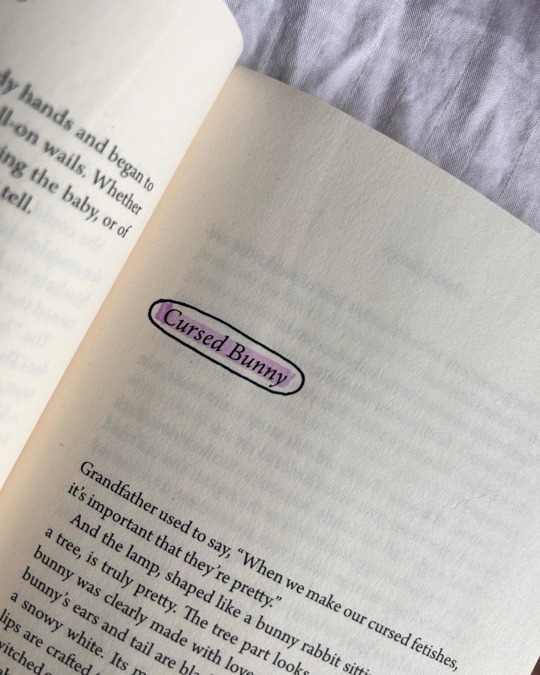
cursed bunny - bora chung (translated by anton hur)
#post: books#post: mine#cursed bunny#bora chung#bookblr#books#books and reading#booklr#reading#horror books#anthology#horror stories#horror#translated books
33 notes
·
View notes
Text

Just some Korean literature 🇰🇷✌🏻
#i want to die but i want to eat tteokbokki#baek sehee#violets#kyung sook shin#cursed bunny#bora chung#love in the big city#shoko’s smile#choi eunyoung#winter in sokcho#elisa shua dusapin#kim jiyoung born 1982#cho nam joo#the vegetarian#han kang#anton hur#korean literature#Korean lit#books#reading#bookblr#bookstagram#asian literature#translated literature#fiction
68 notes
·
View notes
Text
Following the words “Be grateful I raised you” is the implied clause “instead of killing you or leaving you for dead.”
— Bora Chung, Cursed Bunny
10 notes
·
View notes
Text
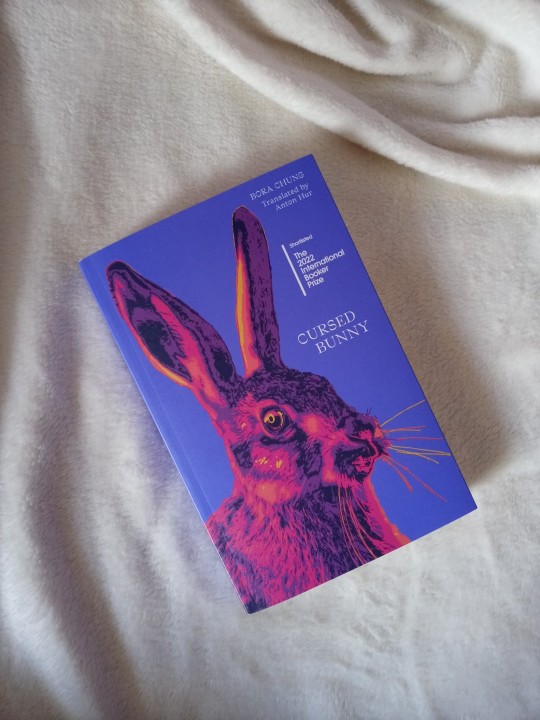
Cursed Bunny by Bora Chung
I have seen this short story collection everywhere online in the past months, and after hearing a bit about it I was quite curious. You might know short story collections are easily my favourite type of book, and I feel like they are an amzing way to get to know a new author. I had never read anything by Bora Chung, and I had never read anything by a Korean author before. The fact that this anthology has stories that fit into diffent genres is also great, because you get to see a lot of the author's potential. Since it's not always easy to talk about short stories collections I'll write a few words for each story in the book. The Head is the first short story and it definitely sets the mood. One day the main character finds a head in her toilet and this face starts talking to her, and things move from there. It was pleasently creepy, and it works amazingly as a presentation of what you are about to read, it was one of my favourite stories of the book. The Embodiement is also quite creepy as a concept, the protagonist starts have heavy problems with her period and then things excalate quickly. I feel like the characters the protagonist of this story play the biggest part in creating a very anxious and claustrophobic enviroiment. Cursed Bunny gives the name to the book and it's a really nice tale about a family who creates cursed objects, and deals in particular with one of these objects. The Frozen Finger was my favoruite short story of this collection. It works amazingly, it's creepy and then it gets worse, it's a really simple idea dealing with a car crash. It's just very well done, and it's exactly the type of story I adore. Snare, alongside with Ruler Of The Winds And Sands, feel just like fairy tales. Just like classic fairy talesthey are magical and their plot feel more bitter than sweet when reading. Although these stories are very different this tale-like vibe worked amazingly for me. Goodbye My Love is a sci-fi short story about androids. I personally feel really creeped out by the idea of highly intelligent machines, and when they look human-like things are even worse in my opinion. The idea was very simple but very well executed. Scars was my only dnf of the collection, I noramlly try to push through with short stories, but I couldn't get into the story and I really didn't care for it. Clearly it wasn't for me. Home Sweet Home is the other story that didn't work for me, I did read it until the end, but I found it predictable and way too long. It's the story of a woman buying a house with her husband, but after the purchase many things start to go wrong in her life. Reunion made me think a lot. One of its themes are traumas and how they influence people's life (and death), which was really interesting. Although it wasn't one of my favourite stories of the collection is probably the one that made me reflect the most. I wish I could say more about each story but I don't want to risk giving out spoilers. Overall I feel like this collection is very interesting, I am really happy I picked it up, and I am now very curious to read more horror by asian authors. This isn't really a horror collection, it's quite difficult to place this book in any genre as I said, there's a lot of maical realism, a bit of sci-fi, and much more. I would definitely recommend it, especially because all stories have very different feels, although they tend to be one the creepier side. I feel like anyone could find something they like in this collection.
#2022 book#book#books#reading#bookblr#booklr#book cover#pretty books#short story collection#cursed bunny#bora chung#book rec#book recommendation#book review#bookish#book blog#studyblr#studyinspo#mine#the---hermit
112 notes
·
View notes
Quote
Ever since I was born, I existed only for you. I wanted to be irreplaceable to you, the only one in the world to somebody.
Goodbye, My Love by Bora Chung
casually cries over a short horror story about robots murdering their creator
21 notes
·
View notes
Text
Latest haul...
Well, as you can guess, I made another run at the bookstore. Today I actually got to visit two different bookstores….came home with 10 more books to add to the collection. My hubby and I didn’t really get to do anything for Valentine’s Day because we were both working. So much hubby took the day off from work today so that we could spend the day doing fun stuff.
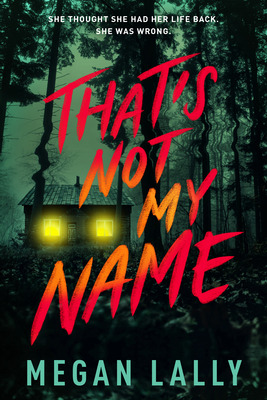
View On WordPress
#Beth Lincoln#Bora Chung#Come Closer#hardcover#Hollowthorn#Kalyn Josephson#Megan Lally#Michiko Aoyama#ND Stevenson#Nimona#Our Lady of the Mysterious Ailments#paperback#Ravenfall#Sara Gran#T. L. Huchu#That&039;s Not My Name#The Mystery at Dunvecan Castle#The Swifts#What you are looking for is in the library#Your Utopia
2 notes
·
View notes
Text
2 notes
·
View notes
Text
Once you experience a terrible trauma and understand the world from an extreme perspective, it is difficult to overcome this perspective. Because your very survival depends on it.
Bora Chung, "Reunion" from Cursed Bunny (translated by Anton Hur)
64 notes
·
View notes
Text

Currently reading
2 notes
·
View notes
Text

the “to shelf” pile is getting outta hand again
4 notes
·
View notes
Text

New purchases
#you make a fool of death with your beauty#akwaeke emezi#love in the big city#sang young park#cursed bunny#bora chung#anton hur#how to kill your family#bella mackie#before your memory fades#toshikazu kawaguchi#books#reading#bookblr#bookstagram#tbr#to be read#literature#fiction#translated fiction#novels
23 notes
·
View notes
Text
I read one of Bora Chung's short stories.
I lie on the bed staring at the ceiling for a while, pondering upon the harshness, cruelty and futility of the world.
I read another of Bora Chung's short stories.
Repeat.
#bora chung#short stories#They're wonderful but oh they're a punch in the gut#the book was a birthday present from the sister as well!#by my request; but still
7 notes
·
View notes
Text
analysis
Bora Chung’s short story, The Head, from Cursed Bunny
- translated by Anton Hur
synopsis : a head constructed out of a woman’s feces rises out of her toilet bowl and begins to call her mother. disturbed and disgusted, a series of events lead the woman to quit her job and enter a loveless marriage and give birth to a daughter. however, she is constantly plagued by the head and so attempts to get rid of it. on after the second failed attempt to kill it, the head eventually stops appearing. the woman grows old, cooking and cleaning for her husband and daughter. as her daughter grows, the woman begins to recognise her ageing body. then one night out of the blue, the head rises out of the toilet as the woman’s younger self and demands the woman to give her her clothes. the head (now her younger self) enacts revenge on the woman for her mistreatment and tips her into the toilet.
-------
when I first read The Head I was struck by how surreal it was. it was nothing like I've ever read before- it was bonkers- yet bonkers isn’t quite the word for it. As crazy as a head made of feces calling you “Mother.” got, the woman’s suppressed dissatisfaction with her life, her relationship with her daughter and husband, her disquietude and disgust of the head all seemed rather rational.
as I was reading through the short story, I was desperately trying to work out what exactly were ‘the bigger meaning’ behind the story. at first it seemed to me to not have a large cohesive ‘bigger meaning’ but rather smaller fragments of it, perhaps its aim was to give a fragmented representation of society- for instance, a pressure to marry, growing old and living with regrets.
arguably, The Head could be interpreted as a showcase of class divide; the head representing the marginalised members of society, and the woman representing the upper class, ending with a social upheaval as the woman is flushed down the toilet, serving as a kind of warning of the transience of power and social capital. in many ways The Head reminded me of Mary Shelley’s Frankenstein, which could also be interpreted as a novel in support of the French Revolution, repeatedly showcasing the idea of ‘if you treat people well, they will behave well, if you treat them badly, they will undoubtedly rebel’. This idea could also be seen in The Head, when the woman demands gratitude from the head at the end of the story, the head responds with ‘Gratitude. What gratitude should I have for you? [...] What have you given me besides your feces and trash?’. the woman's mistreatment and rejection of her responsibility towards the head accumulated the head’s resentment and lead to her demise.
however, I am more so convinced by the reading that The Head was an exploration of the oppression of women and its effects. I am not sure if I am reaching but in some ways I felt that the head was likened to an aborted fetus. It is an unwanted child and the woman did not purposely create it or want it either and if you will, it’s down the toilet. Either way, never mind wether the head is a symbol for an aborted fetus, it is ultimately an unwanted child, a child born out of wedlock which is already a cause of social exclusion be it aborted or not. The head’s identity as a child born out of wedlock- or even as child born out of feces- embodies the unconventional, shunned route leading away from the rigid obligations of marriage, childbirth and motherhood. the woman’s disgust of the head could be reflective of society’s disgust of the unconventional, leading her to quit her job and enter the average prescribed road which she finds no joy in. deep into her middle age, the woman ‘gazed upon the meaningless progression of scenes’ on TV, attempting to distract herself from ‘am odd little space between her heart.’ Her passive action of ‘gazed’ and watching TV in itself suggests a lack of involvement and vigour in her own life, and perhaps a sense of yearning for something more in the form of story-telling to fill the ‘odd little space’.
at the end of the story where the head returns with it’s body complete, it is described luxuriously with all the beauty of youth and the narrative voice begins to refer to it as ‘her young self’. this binds the woman and the head together as one, suggesting the head embodies the woman’s full potential that she had at her youth and before she married and entered her empty, emotionless life. her young self takes over and removes the old self of its meaningless life, and continues as the woman. The young self’s unconventional birth suggests a trajectory where the young self takes an new path as unconventional as her birth. Here, the use of doppelgängers could suggest that the head/the young self is the woman’s unfulfilled potential and desires that had been limited by her and therefore society’s disgust of the head/the young self.
in recent years, anti-feminism has drawn the support of many young men in S.Korea who believe that they have suffered the worst of gender discrimination. an article published by the guardian, reported that this was possibly due to men feeling threatened by women’s advancement in the workplace, and especially because all Korean men must serve mandatory military service before the age of 30, which can hinder their careers. this same service is not expected of women, which, sparks debate which I won’t be discussing here. roughly speaking, this creates a situation where sentiments towards advances in women’s rights are resented and traditional roles for women are pushed. on top to this, S.Korea’s birth rate is decline. undoubtedly there must be a growing pressure on Korean women to fulfil their supposed ‘duties’ of childbirth. as many of us know, having children is challenging, many married women upon having children often retreat from work, and assume housewifely identities which can result in a reliance on their husbands.
this route is seen here, in The Head. the woman leaves her job due to her disgust of the head and enters a loveless marriage, which she and her husband spend in ‘emotional detachment’ and does not seem to view any aspect of it as fulfilling. and despite having a ‘real’ daughter of her own the woman is still the more preoccupied with the head (and therefore what it represents). once the head disappears, she becomes all the more aware of the meaninglessness of her life as a housewife and her age.
Chung seems to be critiquing this unfulfilling conventional path that seems to be ever more expected of women, exploring the emotional effects of this pressure through the characters of the woman and the head.
#thank you for coming to my ted talk lmao#it was so fun to right this because I haven't found much analysis on bora chung's thehead on the internet#it just feels really good to be original for once#like all those old classical texts have been studied thousand times over#idk how much you can say more about them#but anyway#also im not particularly familiar with the societal atmosphere going around in Korea so please correct me if I am wrong#I will definitely correct things if I am#thank you so much!#bora chung#cursed bunny#Booker Prize#international booker prize#the head#literary#literature#literary analysis
21 notes
·
View notes